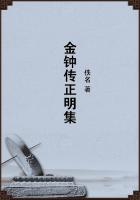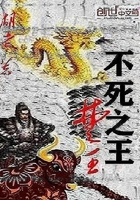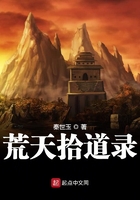Gombeeree,introduced the man and the boy from the canoe to us.The former was named Yellomundee,the latter Deeimba.The ease with which these people behaved among strangers was as conspicuous,as unexpected.They seated themselves at our fire,partook of our biscuit and pork,drank from our canteens,and heard our guns going off around them without betraying any symptom of fear,distrust or surprise.On the opposite bank of the river they had left their wives and several children,with whom they frequently discoursed;and we observed that these last manifested neither suspicion or uneasiness of our designs towards their friends.
Having refreshed ourselves,we found leisure to enter into conversation with them.It could not be expected that they should differ materially from the tribes with whom we were acquainted.The same manners and pursuits,the same amusements,the same levity and fickleness,undoubtedly characterised them.What we were able to learn from them was that they depend but little on fish,as the river yields only mullets,and that their principal support is derived from small animals which they kill,and some roots (a species of wild yam chiefly)which they dig out of the earth.If we rightly understood them,each man possesses two wives.Whence can arise this superabundance of females?Neither of the men had suffered the extraction of a front tooth.We were eager to know whether or not this custom obtained among them.But neither Colbee nor Boladeree would put the question for us;
and on the contrary,showed every desire to wave the subject.
The uneasiness which they testified,whenever we renewed it,rather served to confirm a suspicion which we had long entertained,that this is a mark of subjection imposed by the tribe of Cameragal,(who are certainly the most powerful community in the country)on the weaker tribes around them.
Whether the women cut off a joint of one of the little fingers,like those on the sea coast,we had no opportunity of observing.These are petty remarks.
But one variety struck us more forcibly.Although our natives and the strangers conversed on a par and understood each other perfectly,yet they spoke different dialects of the same language;many of the most common and necessary words used in life bearing no similitude,and others being slightly different.
English Name on the sea coast Name at the Hawkesbury
The Moon Yeneeda Condoen The Ear Gooree Benna The Forehead Nullo Narran The Belly Barang Bindee The Navel Muneero Boombong The Buttocks Boong Baylee The Neck Calang Ganga The Thigh Tara Dara The Hair Deewara Keewara
That these diversities arise from want of intercourse with the people on the coast can hardly be imagined,as the distance inland is but thirty-eight miles;and from Rose Hill not more than twenty,where the dialect of the sea coast is spoken.It deserves notice that all the different terms seemed to be familiar to both parties,though each in speaking preferred its own.
[How easily people,unused to speak the same language,mistake each other,everyone knows.We had lived almost three years at Port Jackson (for more than half of which period natives had resided with us)before we knew that the word 'beeal',signified 'no',and not 'good',in which latter sense we had always used it without suspecting that we were wrong;and even without being corrected by those with whom we talked daily.The cause of our error was this.The epithet 'weeree',signifying 'bad',we knew;and as the use of this word and its opposite afford the most ****** form of denoting consent or disapprobation to uninstructed Indians,in order to find out their word for 'good',when Arabanoo was first brought among us,we used jokingly to say that any thing,which he liked was 'weeree',in order to provoke him to tell us that it was good.When we said 'weeree',he answered 'beeal',which we translated and adopted for 'good';whereas he meant no more than simply to deny our inference,and say 'no'--it is not bad.After this,it cannot be thought extraordinary that the little vocabulary inserted in Mr.Cook's account of this part of the world should appear defective--even were we not to take in the great probability of the dialects at Endeavour River and Van Diemen's land differing from that spoken at Port Jackson.And it remains to be proved that the animal called here 'patagaram'is not there called 'kangaroo'.]
Stretched out at ease before our fire,all sides continued to chat and entertain each other.Gombeeree shewed us the mark of a wound which he had received in his side from a spear.It was large,appeared to have passed to a considerable depth,and must certainly have been attended with imminent danger.By whom it had been inflicted,and on what occasion,he explained to Colbee;and afterwards (as we understood)he entered into a detail of the wars,and,as effects lead to causes,probably of the gallantries of the district,for the word which signifies a woman was often repeated.Colbee,in return for his communication,informed him who we were;of our numbers at Sydney and Rose Hill,of the stores we possessed and,above all,of the good things which were to be found among us,enumerating potatoes,cabbages,turnips,pumpkins,and many other names which were perfectly unintelligible to the person who heard them,but which he nevertheless listened to with profound attention.
Perhaps the relation given by Gombeeree,of the cure of his wound,now gave rise to the following superstitious ceremony.While they were talking,Colbee turned suddenly round and asked for some water.I gave him a cupful,which he presented with great seriousness to Yellomundee,as I supposed to drink.This last indeed took the cup and filled his mouth with water,but instead of swallowing it,threw his head into Colbee's bosom,spit the water upon him and,immediately after,began to suck strongly at his breast,just below the nipple.I concluded that the man was sick;

